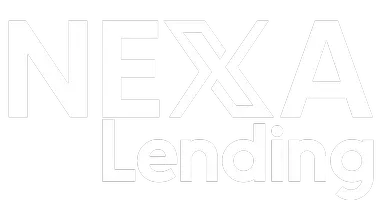Investor Loans
Commercial property loans, also known as investor loans, are designed for real estate professionals such as developers, investors, or corporations seeking to finance properties intended for commercial use rather than residential. These properties may include office buildings, storefronts, multi-family housing units, warehouses, or other income-generating developments.
With a commercial loan, borrowers can finance not only the purchase of the property but also the development and construction costs. This type of financing helps investors expand their portfolios, build long-term equity, and create cash flow opportunities through strategic real estate investments.
Commercial Loan Qualifications
Getting approved for a commercial property loan isn’t too different from a residential mortgage, but because these loans are often granted to business entities, lenders place a strong emphasis on the financial health of the business itself. They’ll look at the current and projected value of the property, the loan-to-value ratio, and the creditworthiness of both the business and the responsible party. In most cases, lenders will also review three to five years of tax returns, bank statements, and other financial documentation to determine stability. For newer businesses, or those with limited credit history, personal financial records from the owners may be required to secure approval.
Commercial Loan Terms
Commercial property loans are typically structured like balloon loans or interest-only loans—requiring smaller monthly payments for a set number of years, followed by the full balance due at the end of the term. Loan terms generally range from 5 to 20 years, often carrying higher interest rates than residential loans because of the added risk. Additional fees are common, either wrapped into the loan amount or due at closing. It’s also important to note that most commercial loans include prepayment restrictions, making it costly to pay off the loan early.
Investor Stated Income Loans
For investors who need a faster, more flexible path to financing, stated income loans can be a smart solution. Instead of requiring extensive financial paperwork, these loans allow you to qualify by stating your income, verifying employment, and providing a suitable down payment. They’re ideal for purchasing or refinancing non-owner-occupied properties such as single-family rentals, condos, multi-unit properties, and even commercially zoned buildings.
With terms ranging from 3–5 years on a fixed ARM and a 30-year amortization, stated income loans give investors room to strategize without the burden of strict documentation. While they require a larger down payment (up to 30% with a 70% loan-to-value cap), they make up for it with easier qualification and fewer restrictions.
This loan type is especially attractive for investors who want to expand their rental portfolio, renovate and flip properties, or jump quickly on a promising opportunity without tying up all their capital. For those focused on growth, flexibility, and speed, stated income loans can be the key to building wealth through real estate.
Vacation & Rental Property Loans
Buying a vacation home or investing in a rental property is a great way to build wealth, but the process looks a little different from financing your primary residence. Since mortgage insurance isn’t available for these loans, borrowers should expect to put at least 20% down, cover all closing costs upfront, and meet more detailed financial qualifications. In some cases, lenders may also require two years of property management experience if you plan to use rental income to help qualify.
These types of loans often come with slightly higher interest rates and fewer low-down-payment options, but they open the door to strong long-term returns. Eligible properties include single-family homes, townhomes, condos, and multi-family housing. Properties such as timeshares, co-ops, certain manufactured homes, and bed & breakfasts typically don’t qualify.
With the right financing strategy, vacation and rental property loans can help you expand your portfolio, generate consistent income, and move closer to financial independence.
Interest-Only Loans
Interest-only loans give borrowers the option to pay just the interest during the initial term of the loan, keeping monthly payments smaller and more manageable in the short term. This flexibility can make it easier to qualify for a mortgage, invest in a property, or manage cash flow during a renovation or transitional period.
Once the interest-only period ends, the loan shifts to full amortization, meaning payments now include both principal and interest. While this results in higher monthly payments, many borrowers refinance into a traditional fixed-rate mortgage before the increase, giving them more control over their finances.
These loans are often used by homebuyers looking to ease into ownership, investors working on flips or rentals, and builders managing costs during construction. While total interest paid may be higher than a standard loan, the strategic use of extra payments during the interest-only period can help close that gap—and in some cases, even shorten the life of the loan.
Balloon Mortgage Loans for Investors
A balloon mortgage is a short-term financing option that requires a lump-sum repayment at the end of the loan term, typically five to seven years. During the term, borrowers may make interest-only payments or smaller monthly payments, but once the period ends, the full balance—plus any accrued interest—is due. In many cases, investors choose to refinance into a different loan program before the balloon payment comes due.
Because balloon mortgages carry more risk for lenders, they often come with stricter qualifications and higher interest rates. However, they also offer advantages: no penalties for early payoff and the flexibility to refinance at any time. These loans are especially common among real estate investors and builders who need financing for construction or property purchases without immediate collateral. Once the property is developed or sold, the proceeds are used to pay off the balloon loan—or it can be refinanced with the improved property serving as collateral.
For investors seeking short-term leverage and flexibility, balloon mortgages can be a powerful tool when used strategically.
Connect with The Money Guy today to see if this loan program aligns with your investment goals.
